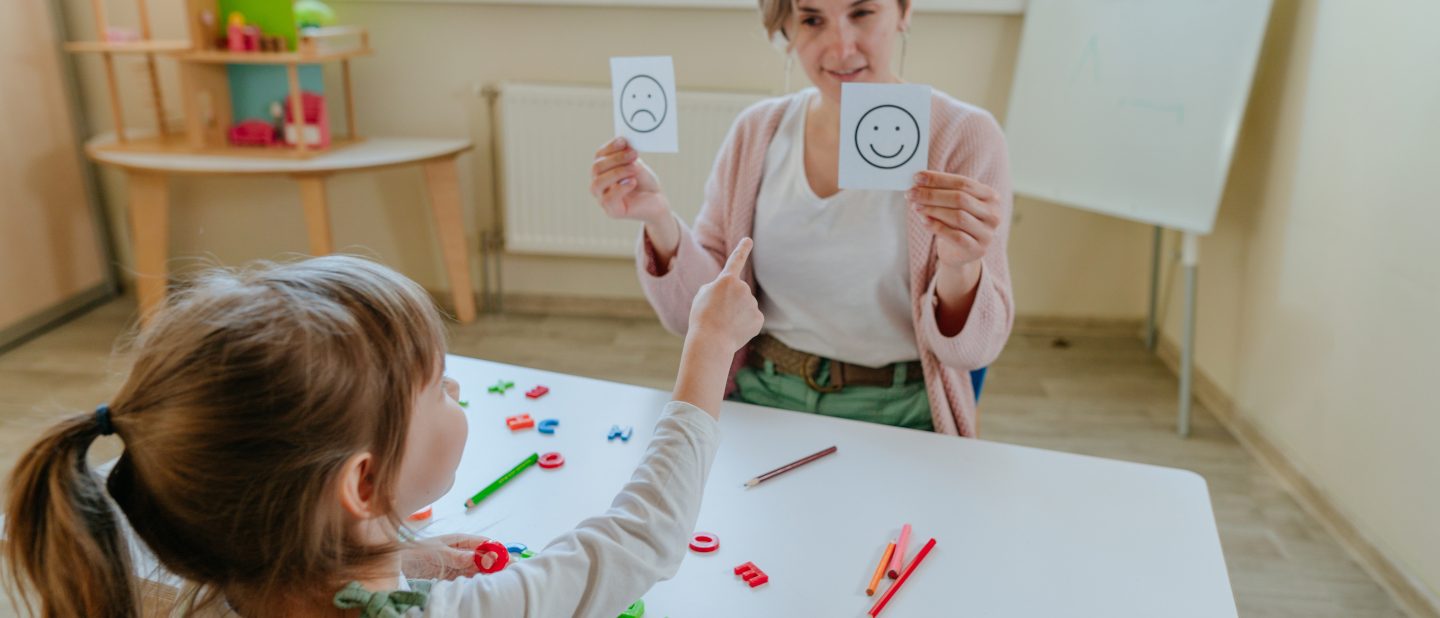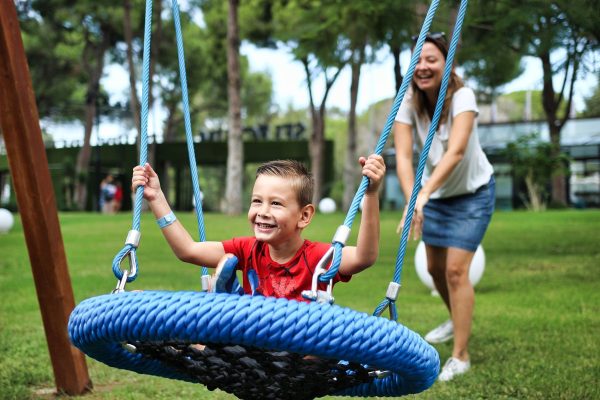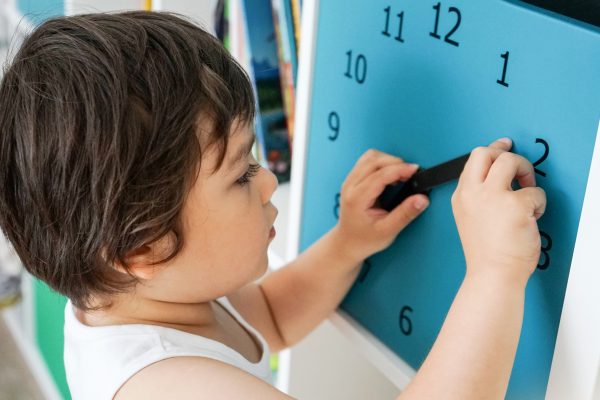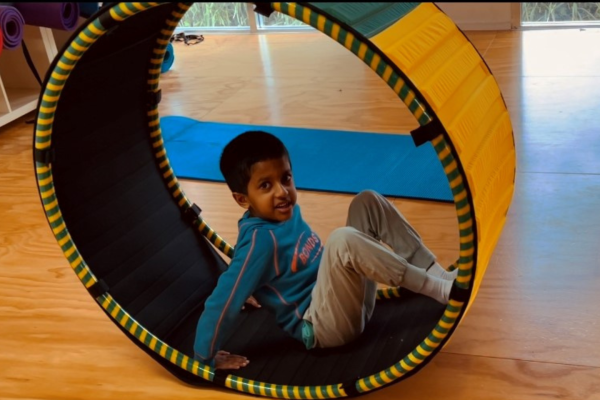
Behaviour support Q&A
Danielle Relf from Behaviour Support & Therapy helps us to understand the role of a Behaviour Support Therapist and how the practice can assist children with disability and neurodivergence.
Why might a parent or carer decide to seek an appointment with a Behaviour Support clinician and psychotherapist for their child? What are some of the common challenges faced by children with disability and their families that you encounter?
Parents and carers often come to see us once another professional has helped identify or validate their own experiences around unwanted behaviours that are impacting the child.
A common challenge experienced by parents and carers is the lack of support and strategies available to manage challenging behaviours. No one sits you down when you have a child and hands you a manual; parents and carers seeking to support children with complex behavioural presentations often face extremely challenging circumstances.
We have found that equipping parents, carers and important people in the life of the child (like teachers or mentors) with practical plans and strategies can make a substantial difference.
Can you tell us a bit more about the role of a child behaviour support clinician/ psychotherapist in supporting children with disabilities or neurodivergence?
Behaviour support clinicians work with children and their families to identify and implement strategies aimed at reducing behaviours that are presenting a barrier to a child’s participation at school, in the home and in relationships. While we often work with other professionals to support children, our work is aimed squarely towards the child’s and parents’ behavioural goals. In our clinic, sessions often involve video interactional analysis, psycho-dynamic talking therapy and a method known as Marte Meo.
Our team works with children using a trauma-informed, infant mental health lens. We work with the child in their environments to better understand their experience. Our observations look deeply into a child’s everyday life and observing them we can see where the social, emotional, and developmental impairments and barriers are for the child. Once we understand the delays or barriers, we can see and identify the triggers and cues that may play a part in starting the unwanted behaviour. The assessment process allows us to understand why a child is resorting to maladaptive coping mechanisms and formulate a treatment pathway and strategies aimed at preventing or resolving these behaviours.
Our sessions can involve play therapy, parent and family sessions or sessions with school staff and other significant others.
What are some misconceptions or myths about child Behaviour Support clinicians that you commonly encounter, and how do you address these?
Often parents would like us to be present and observe a ‘meltdown’ or unwanted behaviour. However, most meltdowns look similar and do not give us much information about the child, how they manage everyday life and activities, what they fear and what impairments or delays they have.
We need to see children function at their best and in optimal settings and mood states. While we observe them at their best we can see the nuances in behaviour, where they are delayed and what support they need. We can also see the meaning behind behaviours and what triggers them in their environment. Identifying the function of complex behaviours is the key to unlocking understanding and, crucially, successful strategies.
How should parents talk to their children about seeing a Behaviour Support clinician and psychotherapist?
Children often have a keen awareness of the barriers they experience so I would advise parents to support the child by explaining how a behaviour support clinician can help them to build and maintain friendships and relationships, help them manage their big feelings. An experienced clinician will find ways of putting children at ease and explaining that they are someone whom the child can talk to about how they feel and who will understand their perspective. In turn, a clinician will help the child with new ways of seeing situations and strategies on how to manage difficult problems.
What typically happens at the first session you have with a family?
During the first appointment, we will discuss what therapy is and how it will look. We will come up with a treatment plan and set goals to work towards. We will collect information from the parents and child to be able to access the child’s needs and development to aim our therapeutic plan at their level, to ensure we meet the needs and actualise the goals. At the same time, we aim to put the parent and child at ease, explain what the work involves and answer questions that arise.
Can you provide examples of specific strategies or interventions Behaviour Support clinicians use to support children with disability in their social, emotional and academic development?
Most of our interventions work towards developing Positive Behaviour Support Plans tailored to our clients’ needs and circumstances. These plans contain specific strategies relevant to the child’s presentation.
While we use a myriad of different approaches and techniques to support our clients, one distinctive method that sets us apart from many other services is the Marte Meo.
Marte Meo is a unique positively lead, relationship building and prevention- based form of educational counselling. It aims to build upon and reinforce the strengths of client, enhancing their ability to effectively communicate and connect with those around them. It has application to clients of all ages and all levels of need.
What advice do you have for parents who may be struggling to navigate the challenges of raising a child with disability or neurodivergence?
It can feel very lonely parenting a child with disability and/or neurodivergence. You often find strategies that work for others don’t work for you when parenting your child. Seek the help and support that is out there. There is a community of people who understand disability and neurodivergent needs and rights and want to help bring people, families and communities of understanding and support together.
SOME MORE IMMEDIATE STEPS THAT CAN HELP INCLUDE:
Avoid making assumptions and think about why behaviour may or may not be happening.
Having connection/relationship moments in everyday life and settings is key to understanding children.
Adjust tasks and expectations for your child to support success and celebrate those successful moments when they arise.
Behaviour Support & Therapy is based in Adelaide and has 15 years experience providing therapeutic services and behaviour management to clients of all ages with complex disability, mental health and dual diagnosis. Get in touch at behavioursupport.com.au or call 08 7225 2566






